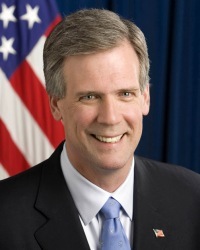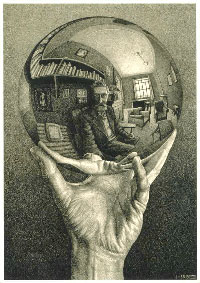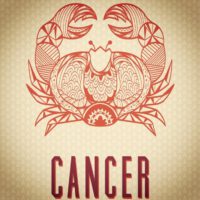This is the second of two posts on the subject of Hell.
The first may be found here:
♦ The Death of Hell
 On an earlier post about grace and Karma, a commenter posed this question:
On an earlier post about grace and Karma, a commenter posed this question:
I’d like to ask you a question because you strike me as an intelligent man of faith. I was taught that hell is a place of eternal conscious torment, a nice euphemism for a torture chamber. Do you believe that those of us who fail to accept grace will be tortured? If not, why not? Augustine and Calvin seemed to believe it.
I began to answer this question in my prior post on the subject, tackling it from a mostly metaphysical perspective, basing a belief in Hell on four principal pillars: that man is a moral being, comprised of an innate sense of right and wrong, good and evil; that man is a transcendent being, with a nature which seeks out and relates to the immaterial, to the eternal, to the divine; that man has a sense of justice, with a desire for reward for good and punishment for evil; and that man is incapable of functioning without reference to absolutes — in practice, always, even when denying them intellectually — which infers a standard against which we are measured, and consequently implies a sentient and just deity — indeed a personal deity — as the source for such absolute standards.
Such premises cannot be “proved” — at least from the viewpoint of the two-dimensional determinism so prevalent in contemporary materialist scientism. The arrogated assumptions of the materialist preclude a priori anything of transcendent or immaterial nature as inherently beyond scientific proof, no more than mere whimsical fantasy or superstitious drivel, and consequently false (an interesting conclusion, this: as that which cannot be proved is not by necessity false, but rather, unprovable, is it not?). Yet these very presumptions are reasonable reflections of the observed nature of man, and the materialist’s moral judgment on transcendent beliefs as foolish, or even evil, belies his own deterministic worldview, which permits no transcendent absolute against which to judge such convictions as right or wrong.
So it is reasonable to believe (if not “provable”), that as transcendent, moral beings, something of our immaterial and conscious nature survives our physical demise, given that we relate to a Being unbound by time, physical existence, or mortality. It is therefore also reasonable that the nature of such existence after death itself has a moral and just dimension. Though we might ponder or dispute the moral criteria about which such a final determination of justice might be made, if there is justice at all, then there must be justice in the existence (in whatever form it may take) after death.
But what might such a state of retributive justice for evil be like? Is it, as our commenter suggest, a place where God “tortures” those with the audacity to disobey his dictates? Is it hot, cold, dark, or colorless? Are there levels of torture, as envisioned by Dante, or flaming lakes and fire and brimstone, as some Biblical passages suggest? What, indeed, is the temperature of Hell?
Such speculations, whether arising from literature, popular culture, or the inferences and metaphors of Scripture, are by necessity insufficient to grasp the nature of Hell, for we mortals are incapable of fully apprehending the nature of an eternal afterlife, inherent in its nature far beyond the capacity of mortal man to comprehend. Rather than fret over the fires or torments of Hell, or whether Hell abounds in pitchfork-wielding demons or endless Bacchanalian debauchery, it is perhaps a more fruitful source of insight regarding eternal punishment to focus instead on the nature of God and the nature of man, to understand the nature of Hell.
In the Judeo-Christian tradition, God is understood to have certain innate and unalterable characteristics, the most important of which are His holiness and His love. Holiness refers to his purity of motive and perfect goodness of character, manifested in His grace, His justice, His mercy, His patience, and a host of other virtues embodying perfect goodness. The love of God, which is the very essence of His nature, is not the superficial sentimentality nor maudlin physicality of our current culture, but rather the completely selfless devotion to the well-being, happiness, and success of those He loves, His creation. It is selfless to the point of self-sacrifice: unlike, say, the god of Islam, who commands the death or enslavement of unbelievers, the Christian God dies for unbelievers, that they may live in freedom.
Just as God is selflessly devoted to man, created in His image with the capacity to love — and therefore possessed of free will, without which love is impossible — man is designed to selflessly love God and serve Him. But sin — the tendency both innate and intentional to serve self rather than God — intervenes, and breaks the relationship. Man, now functioning autonomously on self-will, increasingly bears the fruit of his growing distance from the source of goodness. The natural result of this relational disruption and flight from the ultimate good is everywhere evident in man: hatred, pride, arrogance, decadence, evil behavior, fear, pain, suffering, purposelessness, despondency. Such is the natural gravity of rejecting God to serve oneself. The inexorable trajectory of life thus lived is misery, darkness, and hopelessness — though we strive mightily to mitigate the inevitable consequences a life thus lived through denial, blame, addiction, and the distractions of money, power, and materialism.
We are offered, in this life, the opportunity to change; to seek reconciliation, acknowledging our repudiation of God, seeking forgiveness, and the power to turn from our autonomy of the will to a place of submission which will lead us back to the joy and purpose originally intended for us in the plan of a loving, relational God. Yet free will being what it is, not all will make this choice; blinded by the deception that we may be happy only by being masters of our own life and destiny, we endlessly pursue this illusory and unobtainable goal down a path which only leads us away from the only source of true happiness. It is a path many pursue to the gates of death.
And thus, having squandered our many chances to turn back to God during our life, we arrive at the threshold of death, our wills fully steeled in determination to have our own will and our own way. And so our wish will be granted, for all eternity. Whatever the form or essence of that which we call Hell, it will be nothing more than the fullness of what we ourselves have chosen, with all the illusions and deceptions of this life stripped away. We will bear the full weight of our pride, our hatred, our fear, our rage, our selfishness and discontent, our profound loneliness, in an eternity of hopelessness and regret over what we have lost, irretrievably, in casting away the goodness and mercy of God in what was naught but a pure triumph of the will.
C.S. Lewis, in the The Great Divorce, wrote about the intransigence of spirit which is the essence of Hell:
For a damned soul is nearly nothing: it is shrunk, shut up in itself. Good beats upon the damned incessantly as sound waves beat on the ears of the deaf, but they cannot receive it. Their fists are clenched, their teeth are clenched, their eyes fast shut. First they will not, in the end they cannot, open their hands for gifts, or their mouth for food, or their eyes to see.
And again, from Lewis:
There will be two kinds of people in the end: Those who will say to God ‘Thy will be done’ and those to whom God will say ‘Thy will be done’.
In our therapeutic culture, where all is tolerated but the good, the assertion that there are consequences for our behavior, either temporal, or especially eternal, is a truly noxious notion. The idea of Hell is perceived as an anachronistic anathema, promoted cynically by clergy controlling the poor, ignorant fools who follow them. Even those with a nominal belief in a deity will attest, with a pretense more wishful than wise, that a God of love would never condemn those who reject Him to Hell. In some sense–surely not that which the proponents of such pop theology intend–this may well be true. It will be, for those who enter that dark, hopeless, and agonizing eternity, not something dictated from on high by a vengeful God gleeful at our torture. It will be our own choice, fully, to reject the mercy and grace which has been offered to us without cost by Him who gave everything to draw us toward an eternal relationship, filled with unspeakable joy and peace, with Him.



 Often in the sturm und drang of a world gone mad, there comes, through the chaos and insanity, some brief moment of clarity. Such times pass by quickly, and are quickly forgotten — as this brief instance might have been, courtesy of my neighboring bell weather state of Oregon: (HT:
Often in the sturm und drang of a world gone mad, there comes, through the chaos and insanity, some brief moment of clarity. Such times pass by quickly, and are quickly forgotten — as this brief instance might have been, courtesy of my neighboring bell weather state of Oregon: (HT:  On a
On a 
